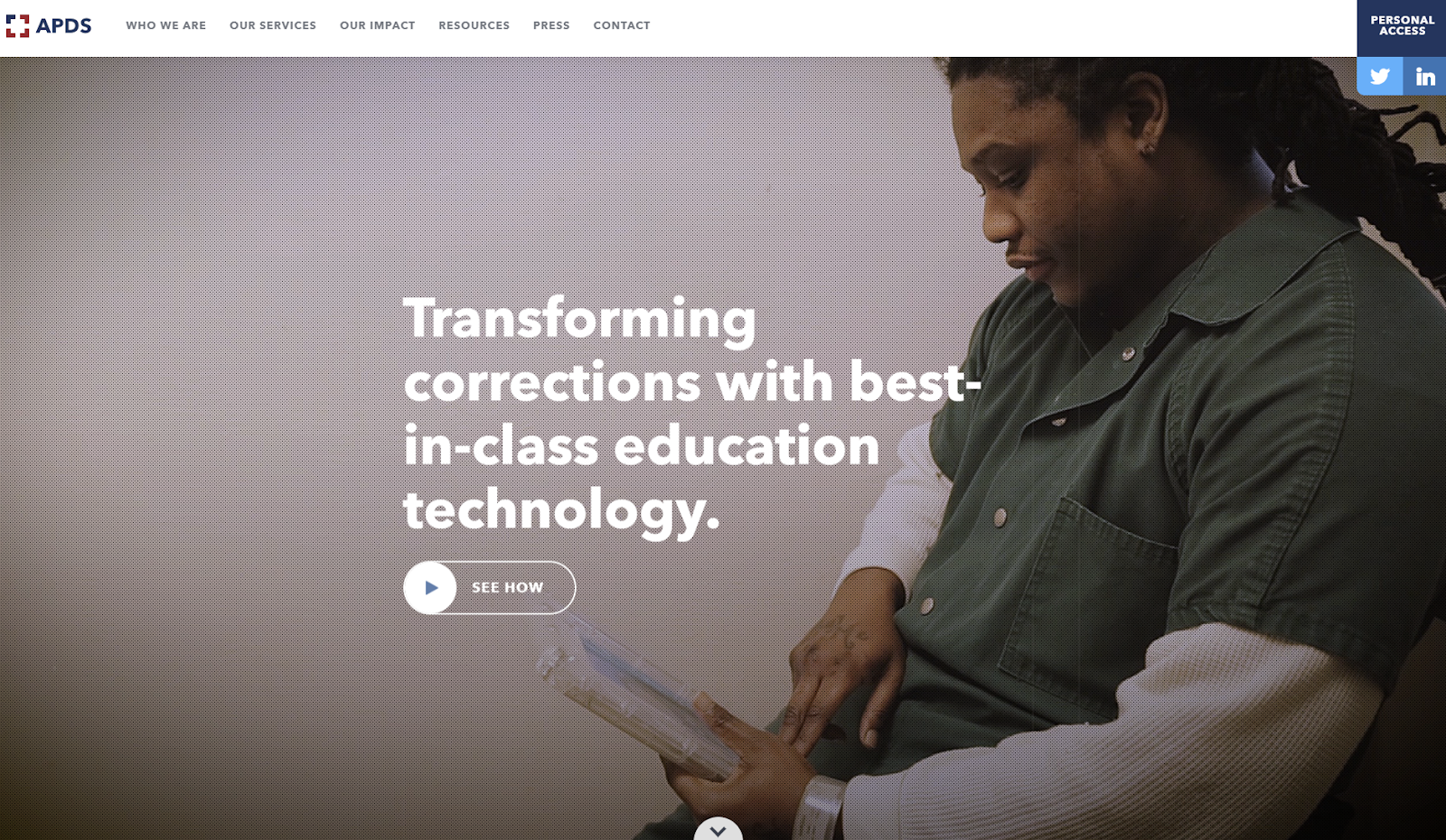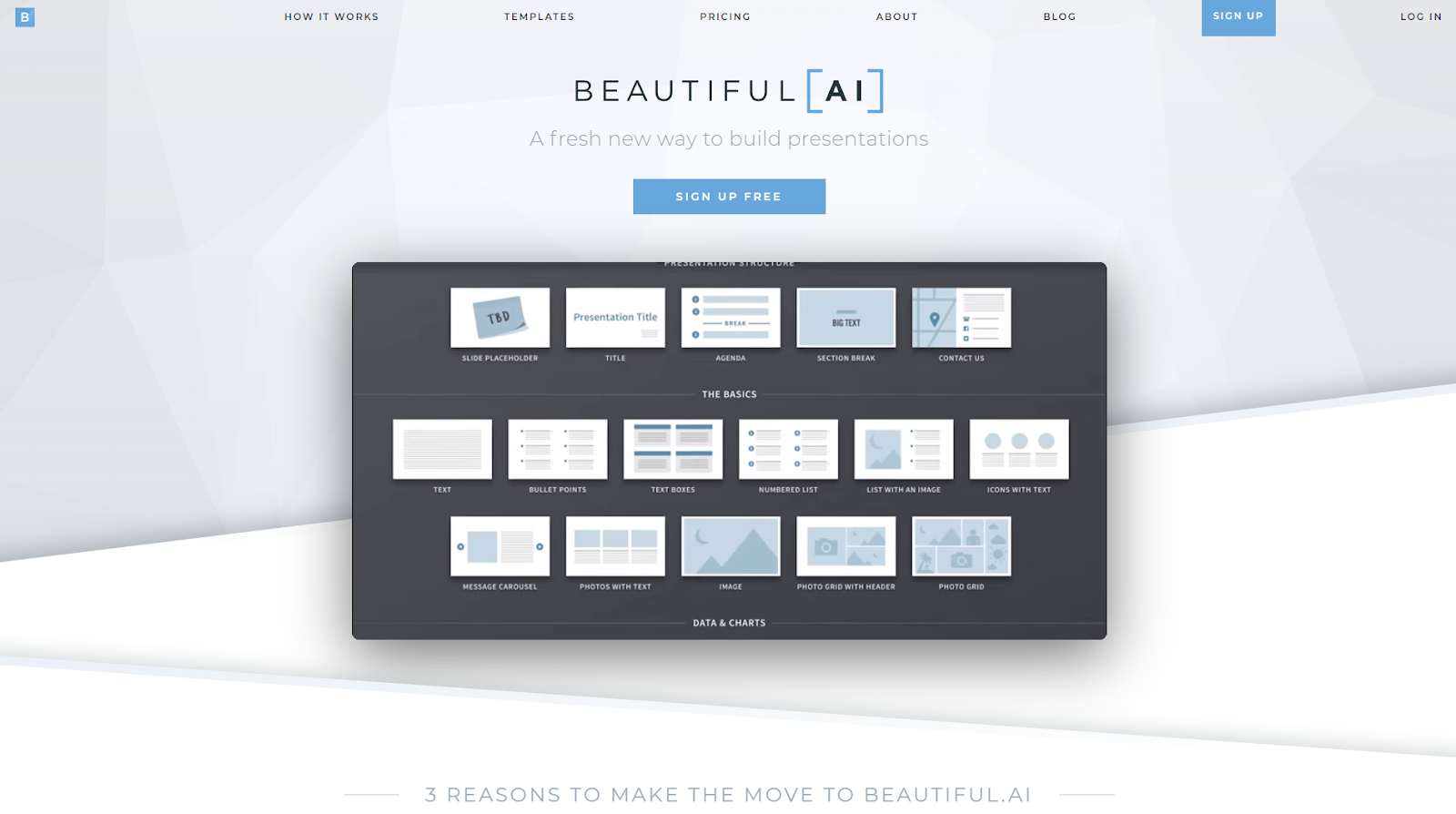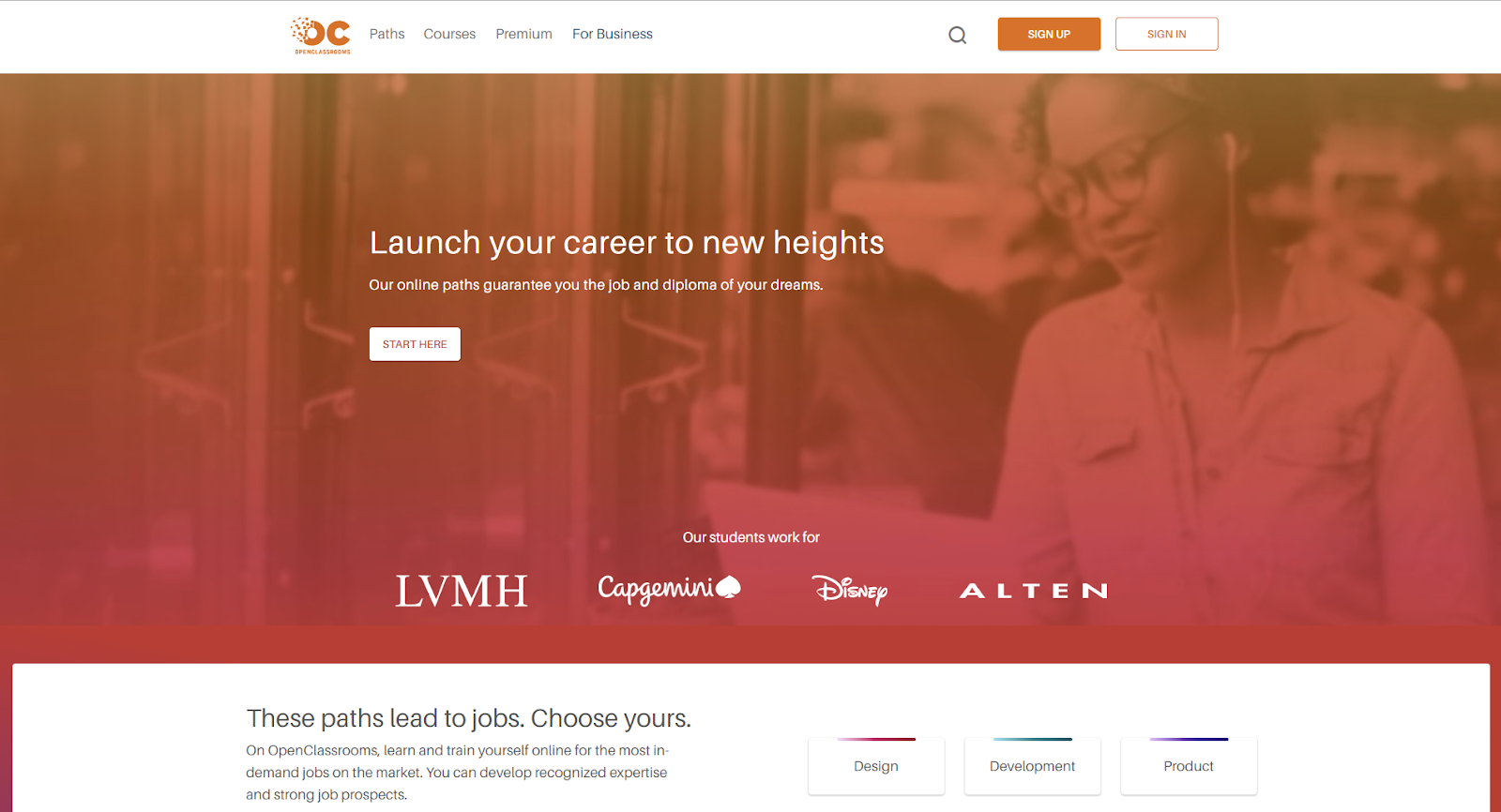Startup day (July-August 2018)

Continuing the “Startup of the Day” series of digests, today I present the most interesting projects for July-August 2018. If you want to read the rest, then please in my blog. Entries are available on Facebook , VK , ICQ and Telegram .
American Prison Data Systems

Digital transformation goes in the most unexpected places too. American Prison Data Systems sells special smartphones for prisoners. For a prisoner, the value of a startup lies in the word “smartphone”, millennials also go to jail, they can’t do without gadgets. For the prison administration, the key feature is “special”. With the usual iPhone or Samsung, the contingent will start to create indecency and negotiate an escape, but here you will not install new software, you will not start a secret chat, everything is recorded and statistics are kept.
In addition to entertainment content, a variety of educational products are pre-installed on the smartphone. It is difficult to earn money on prisoners, they will not pay for Udemy, but videos from TED to Pluralsight are happy to watch. APDS even puts materials on the school curriculum, repeat someone, someone for the first time. In theory, additional education helps not to return to jail after release, but the startup has no own statistics yet.
In the US, 2 million prisoners, counting $ 300 for a piece of iron and a 3-year life expectancy - the market is $ 200 million a year. Not real estate, of course, but still there is something to fight for. For 6 years of life, the company has attracted 17 million dollars of investment.
Beautiful.ai

Beautiful.ai draws beautiful presentations. The user launches an online editor and makes slides, and they are much better than in PowerPoint. The secret of success is simple: a startup does not give freedom. The system contains dozens of templates that can not be changed. The user does not have any tools like “align this paragraph to the left”, only “change the overall palette”, “increase the number of columns in the diagram”, and write texts with numbers. Another plus is the collection of free pictures and icons, even with requests in Russian, it finds something.
In the end, yes, it turns out well. The taste of taste in Beautiful.ai designers is better developed than that of the average client, they worked on the template for weeks, not minutes, and that’s the result. However, miracles do not happen, if the user is harming within the limits of his freedom, magic does not occur, the slide remains ugly. You can, for example, in two equal columns in one enter text from one word, and in the other - from a couple of paragraphs. The distortion will not be corrected, it will not be beautiful.
Where is stated in the domain and PR AI, I do not see. The startup says that the software "feels" the beauty and tends to it. In fact, the behavior of the slide when editing is determined by rigid pre-defined frames, “the first three elements in a row, starting with the fourth in two rows, from the sixth - three, do not give further than the twelfth”. And these parameters are clearly not the result of machine learning.
The user, however, anyway. The tool looks working, I will do the next presentation here, see how it is put into practice. While everything is free, but soon the freebie, of course, will end, access to the "export" button only by subscription suggests. Investment Beautiful.ai attracted $ 16 million, managed this year to organize two rounds.
Ocado

The English startup Ocado in 2010 already deserved a laudatory review. He then went to the IPO and turned into a landmark for grocery online stores of the world - these are the same as we are, and already on the stock exchange. The business model and product of the startup were identical to the Moscow Platypus: the user clicks the cart in the web interface or application, the next day the truck brings the order. Ocado himself was engaged in procurement and logistics, worked as a classic online store, no signs of marketplace.
The IPO business was estimated at a billion dollars, by the end of 2017, the capitalization was about two - a fair assessment in terms of current indicators: online leadership, but a fraction of the order of one percent, if we consider the offline market. Revenue grew by 10-15 percent a year, there was a small profit. For startups - a model of success, among the billion-dollar companies - boredom, and the conservative part of the portfolio.
And here the world has changed. Large networks realized that the future was in delivery, and began to launch online storefronts seriously, and not for show, as they had done from the beginning. For business, Ocado is a very serious threat. Turnover from traditional players is greater, purchase prices, therefore, lower; mobile application, they will write beautiful sooner or later; Cross-promo online offline really works - in the long term, an independent Internet player has nothing to catch. Unless you have time to sell, time to save the mastodon, to conclude a deal "Amazon with Whole Foods" on the contrary.
But Ocado came up with a better way. They are ten years in business, and the essence of product delivery is warehouse management. Ocado has vast experience and proven technologies in automating and supporting warehouses. The networks have no direct analogue, their logistics work in a completely different way, through store shelves - this, in fact, has always prevented online divisions. Ocado's expertise is unique or almost unique: online food retailers of this magnitude, if they exist, are in the world on the fingers of one hand. And now the company is selling its experience.
Ocado negotiates with retail chains, they build a warehouse, Ocado automates and serves it for a fraction of the turnover. The partner saves years of tamping with cones, gets a dependency on the supplier for decades, but overtakes the competitors - some consider the deal to be profitable, contracts are made, the loudest launch happened in the spring with the American Kroger.
As a result, Ocado from the seller of products turns into an IT-business, the exchange loves such metamorphosis. In 2018, the company's capitalization increased from $ 2 billion to 7.
Openclasses

The French educational startup OpenClassrooms has not invented anything new, it just did what the entire industry dreams of. The basic product of a startup - courses on serious topics: programming, design, and the like. A student watches a dozen videos of five minutes each, passes several tests, submits homework - and now he already knows the basics of Scrum or confidently writes Hello, world! in python. Subscription costs 20 euros per month, with reduced functionality you can study for free. Coursera almost fits this description, there are less famous analogues, but OpenClassrooms didn’t stop here, but made two leaps forward.
First, he launched the undergraduate program. On the same platform, the same courses are combined into an educational trajectory, complemented by diploma works, and at the exit - a ready-made specialist with an official diploma of higher education. The quality of education is confirmed not only by the French state, but also by the labor market: OpenClassrooms guarantees graduates employment and returns money if they do not find a job in a new specialty. The program lasts a year, costs 300 euros per month, 15 times more expensive than a regular subscription, but there is a difference in the cost price - the future bachelor gets weekly video calls with a personal curator. The bonus sounds ridiculous and, at first glance, should not be worth that kind of money, but in fact a couple of hours a week, 20 euros per hour - now already 200 per month, and a startup should also earn. The essence of the product the duration of the course, the price, adjusted for the level of wages and even the mechanism of guaranteeing employment, are very similar to our Geek University. Only we have the main content - webinars, and not pre-recorded videos, students ask questions immediately, not at the end of the week. But the state diploma overshadows the grocery details, the bravo of the French bureaucracy!
The second realized dream of educational projects is payment through the employer. IT-companies, partners, announce competitions for free education, choose the best by tests, send them to study in OpenClassrooms and gradually drag them to themselves. Everybody who wants to enroll a lot loves to save on education, there are people to choose from, students are intelligent. In this case, the cost of training, even without wholesale discounts - 3,600 euros. Recruitment agencies in France for the programmers take more, and the reasonableness of the candidates does not guarantee. The program was launched last year, the test group has not yet been released, but OpenClassrooms is already expanding the experiment and connecting new partners.
The startup has spent 10 million dollars of investments and recently attracted another 60. With new money, he is going to conquer the English-language market and new professions, but the world hasn’t come together with IT.
Hello alfred

American startup Hello Alfred is another attempt to free a person from household chores. The startup hypothesis is that the millennial has already learned to outsource large tasks, and, for example, the Qlean analog makes general cleaning in the apartment. Problems bring insignificant trifles: send a parcel, make a bed, buy toilet paper, each one of them is ugh and pound, two minutes, but all together - a whole household, the horror of a bachelor.
Alfred takes all the cares of himself. “Butler for an hour” comes to the apartment once a week, tidies up a little, buys products on the list, does all the little things himself and calls outsourcers where it takes a lot of work or qualifications. He does not repair the faucet in the kitchen, but calls the plumber and meets him during working hours - in any case, the problem is solved. The client will pay the master full price, but will save in time and nerves.
There are no restrictions on the tasks. The journalist asked Alfred to put 90 books on the local Yulu - the butler did everything and only charged an extra bill for the time, but he didn’t meet the free limit. Such responsiveness requires a good knowledge of the client, it is impossible to work according to the instructions and the “walk around the house” protocol, the quality of the startup’s work will suffer greatly if different people come in different weeks. Because of this, Alfred cares about the loyalty of performers more than is customary in the new economy, all butlers are official employees with all the full-time bonuses, and not just some guys who stand by and buy information services.
Another difference from the classic Uber is the love of B2B. A startup negotiates with apartment complexes for inclusion in the list of services. The homeowner gets a trendy service for tenants and additional loyalty, Alfred has many clients in one place and saves time to travel with the performer. Now, according to this scheme, 2/3 of all apartments are serviced.
For private clients, the service costs 250-300 dollars per month depending on the city. All external expenses - buying food or calling the master - are paid by check. Additional earnings on cashbacks from favorite contractors are probably inevitable, but so far even investors are not told about it. Adjusted for Moscow salaries, the subscription price is 4-5 thousand rubles - not so much for the lack of trouble in the household.
Investment Alfred spent 12 million dollars, another 40 received in the last round. The startup serves 10,000 apartments, the revenue is $ 25 million per year.
